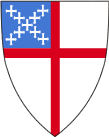Since the Roman tribune wanted to find out what Paul was being accused of by the Jews, the next day he released him and ordered the chief priests and the entire council to meet. He brought Paul down and had him stand before them.
While Paul was looking intently at the council he said, “Brothers, up to this day I have lived my life with a clear conscience before God.” Then the high priest Ananias ordered those standing near him to strike him on the mouth. At this Paul said to him, “God will strike you, you whitewashed wall! Are you sitting there to judge me according to the law, and yet in violation of the law you order me to be struck?” Those standing nearby said, “Do you dare to insult God’s high priest?” And Paul said, “I did not realize, brothers, that he was high priest; for it is written, ‘You shall not speak evil of a leader of your people.’”
When Paul noticed that some were Sadducees and others were Pharisees, he called out in the council, “Brothers, I am a Pharisee, a son of Pharisees. I am on trial concerning the hope of the resurrection of the dead.” When he said this, a dissension began between the Pharisees and the Sadducees, and the assembly was divided. (The Sadducees say that there is no resurrection, or angel, or spirit; but the Pharisees acknowledge all three.) Then a great clamor arose, and certain scribes of the Pharisees’ group stood up and contended, “We find nothing wrong with this man. What if a spirit or an angel has spoken to him?” When the dissension became violent, the tribune, fearing that they would tear Paul to pieces, ordered the soldiers to go down, take him by force, and bring him into the barracks.
